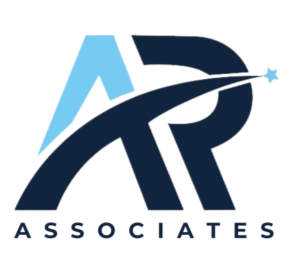Setting up a business in Dubai requires a solid understanding of corporate structures. Each type has unique rules, responsibilities, and benefits. Choosing the right one ensures smooth operations and legal compliance.
Why Corporate Structure Matters?
The structure determines ownership, liability, taxes, and operational flexibility. It also affects the type of licence you need and your eligibility for visas or free-zone incentives. Understanding these factors helps investors avoid mistakes.
Common Types of Business Structures
- Sole Establishment (Sole Proprietorship)
A sole establishment is owned and controlled by one individual.
The owner has unlimited liability, meaning personal assets are at risk if debts arise.
It is simple to set up and suits small professional services or consultancy work. - Civil Company
Civil companies serve professional service providers like Consultants, Accounting & booking, Design services, architects etc.
Partners fully own the company and share responsibilities.
Liability is not limited to the company’s capital; shareholders are personally responsible for all debts. - Limited Liability Company (LLC)
LLCs are popular for many businesses in Dubai.
They combine partnership flexibility with limited liability for owners.
Each shareholder is liable only for their capital contribution.
LLCs require at least two shareholders but offer protection for personal assets. - Free Zone Company (FZC)
FZCs operate within designated free zones and attract foreign investors.
Benefits include 100% foreign ownership, zero personal tax, and exemptions from import/export duties.
Free zones have over 50 options, each with its own rules. - Partnership Company
Partnerships involve two or more individuals sharing profits, losses, and responsibilities.
Common in medical practices, law firms, and investment groups.
Partners must have clear agreements on roles and liabilities. - Private Joint Stock Company (PrJSC)
PrJSCs are privately held, with at least three shareholders and minimum capital of AED 2 million.
Shares cannot be offered to the public.
This structure suits mid-sized companies looking for growth while remaining private. - Public Joint Stock Company (PJSC)
PJSCs divide capital into shares and limit shareholder liability to their shareholding.
At least 51% of shares and majority board positions must be held by UAE nationals.
Minimum capital is AED 10 million, making it suitable for banks, insurance, and finance firms. - Branch Office of a Foreign Company
Branch offices promote parent company activities without engaging in local sales.
They require a National Service Agent (NSA) with no equity or liability.
A refundable AED 50,000 bank guarantee is needed for licensing.
Licences and Compliance
- Dubai offers licences based on business activity: professional, commercial, industrial, agricultural, tourism, or crafts.
- The licence type affects what your business can legally do and which structure you should choose.
- Selecting a proper trading name that follows UAE rules is mandatory.
Key Considerations for New Businesses in Dubai
- Understand liability for each structure.
- Choose the correct licence to match business activity.
- Free-zone companies offer tax benefits but have location limits.
- Professional guidance helps avoid mistakes and speeds up setup.
Conclusion
Businesses in Dubai benefit from a variety of corporate structures suited for different goals. From sole proprietorships to PJSCs, each has clear rules on ownership, liability, and operations. Foreign investors should carefully match their objectives with the right legal framework.
For guidance and full support in registering and structuring your business, contact AR Associates today and get expert help with every step.


